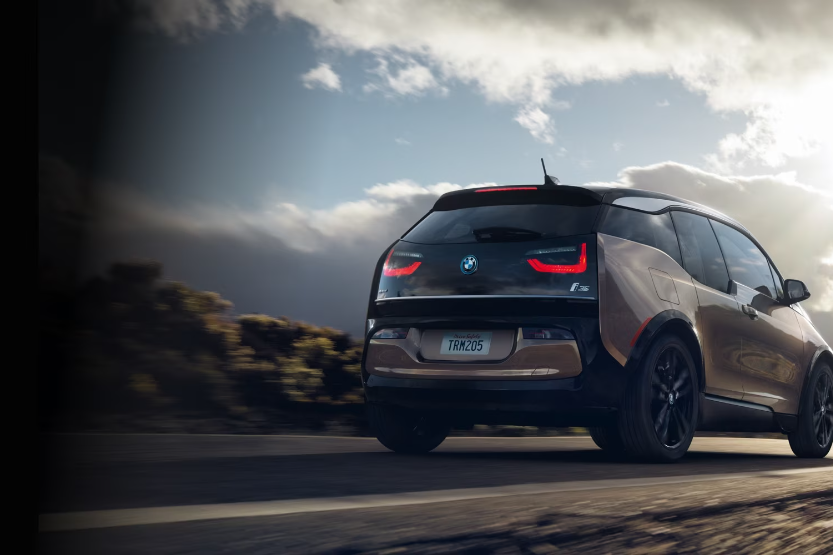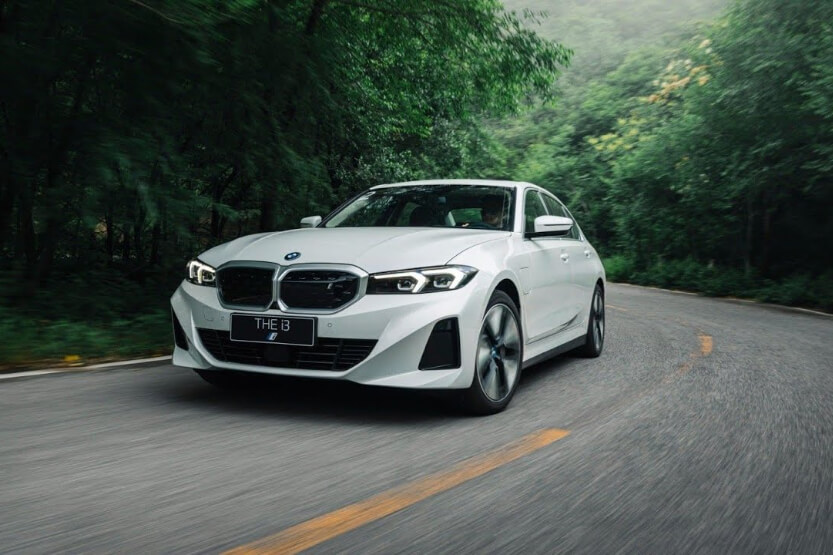The BMW i3 is an electric car that has been around since 2013. It was one of the first electric vehicles to be marketed as a premium car, and it has been a popular choice for those looking for a sustainable and stylish ride.
One of the most important factors to consider when purchasing an electric car is reliability.
The BMW i3 has received mixed reviews when it comes to reliability. While some owners have reported no issues with their cars, others have experienced problems with the battery, the electronics, and the charging system.
However, it is important to note that the i3 has been on the market for several years, and many of the early issues have been resolved in newer models.
Additionally, BMW offers a warranty on the i3 that covers the battery and other components for up to 8 years or 100,000 miles, which can provide peace of mind for potential buyers.
Overall, the BMW i3 is a solid choice for those in the market for an electric car. While there have been some reported issues with reliability, many of these issues have been resolved in newer models, and BMW offers a generous warranty to cover any potential problems.
As with any car purchase, it is important to do your research and consider your specific needs and budget before making a decision.
BMW i3 Overview

The BMW i3 is an all-electric vehicle that was first introduced in 2013. It is a compact car that is designed to be both stylish and eco-friendly. The i3 is available in both a fully electric version and a hybrid version. It has a unique design that sets it apart from other cars on the market.
Design and Styling
The BMW i3 has a distinctive design that is both modern and futuristic. It has a sleek, aerodynamic body that is made from lightweight materials.
The car’s body is made from carbon fiber reinforced plastic, which makes it both strong and lightweight. This material is also used in the aerospace industry.
The i3 has a unique look that is both sporty and elegant. It has a low, wide stance that gives it a sporty look. The car’s front grille is designed to look like a futuristic air intake. The car’s headlights are also unique, with LED lights that are integrated into the car’s body.
Electric Drive and Performance
The BMW i3 is powered by an electric motor that provides instant torque and acceleration. The car’s electric motor provides 170 horsepower and 184 lb-ft of torque. This allows the car to go from 0 to 60 mph in just 7.2 seconds. The car’s top speed is limited to 93 mph.
The i3 has a range of up to 153 miles on a single charge. The car’s battery can be charged to 80% in just 40 minutes using a DC fast charger. The car’s regenerative braking system helps to recharge the battery while the car is in motion.
The i3 has a unique driving experience that is both smooth and quiet. The car’s electric motor provides instant torque, which makes it feel very responsive.
The car’s handling is also very good, thanks to its low center of gravity. The car’s steering is precise and responsive, making it easy to maneuver in tight spaces.
Reliability and Safety
The BMW i3 is a reliable and safe electric vehicle that has received positive ratings from various safety organizations. In this section, we will discuss the safety features, reliability rating, and recalls and issues of the BMW i3.
Safety Features
The BMW i3 comes equipped with several key safety features, including six airbags, stability control, and anti-lock brakes (ABS). Additionally, the i3 has received high marks for pedestrian safety, with its innovative design helping to reduce the risk of injury in the event of a collision.
Reliability Rating
According to a customer satisfaction survey conducted by Driver Power, BMW came in 16th out of 29 manufacturers rated in the survey for overall customer experience and reliability.
The BMW i3 reliability score is 6.8 out of 10 based on reliability, performance, safety, interior design, and critics’ rating. The score makes the i3 a decent vehicle for driving in urban and suburban settings.
Recalls and Issues
The BMW i3 has had a few recalls over the years, including one in 2014 for a problem with the REx system that could cause the car to stall. However, BMW quickly addressed the issue and offered a fix to affected owners.
In terms of common issues, the BMW i3 has been known to have problems with its range extender system, which can result in the i3 not accelerating while driving.
Additionally, the problem can exacerbate when the i3 drives uphill, and the REx system slows the speed. However, these issues are relatively rare and can be addressed by BMW dealerships.
Overall, the BMW i3 is a reliable and safe electric vehicle that has received positive ratings from various safety organizations. While there have been a few recalls and issues, BMW has quickly addressed these problems and offered fixes to affected owners.
Battery and Range

The BMW i3 is an electric car that runs on a lithium-ion battery pack. The battery is located in the floor of the car, which gives it a low center of gravity and improves handling. The i3’s battery technology is advanced and has been designed to provide a long-lasting and reliable power source.
Battery Technology
The i3’s battery is a 33 kWh lithium-ion battery pack that provides power to the electric motor.
The battery is designed to last for many years and has a warranty of 8 years or 100,000 miles, whichever comes first. The battery is also air-cooled, which helps to maintain its temperature and prevent overheating.
Range and Efficiency
The i3 has a range of up to 153 miles on a single charge, which is impressive for an electric car.
The range can be extended up to 200 miles with the optional range extender, which is a small gasoline engine that acts as a generator to charge the battery. The i3 also has regenerative braking, which helps to recharge the battery while driving.
The i3’s efficiency is also noteworthy. It has an MPGe rating of 118, which is higher than many other electric cars on the market. The i3’s efficiency is due in part to its lightweight construction, which uses carbon fiber reinforced plastic (CFRP) for the body.
In conclusion, the BMW i3’s battery and range are impressive and reliable. The battery technology is advanced and designed to last for many years, and the range and efficiency are competitive with other electric cars on the market.
Warranty and Servicing
Warranty Coverage
As per BMW’s website, the BMW i3 comes with a standard 4-year/50,000-mile limited warranty. This warranty covers any defects in materials or workmanship and also includes roadside assistance. Additionally, the i3’s battery is covered for 8 years or 100,000 miles, whichever comes first.
For those who want additional coverage, BMW offers an extended warranty that can be purchased at the time of sale or before the standard warranty expires. The extended warranty covers most of the same items as the standard warranty, but for a longer period and with fewer restrictions.
Maintenance and Servicing
Regular maintenance is essential for keeping the BMW i3 running smoothly. The i3 has fewer moving parts than a traditional gas-powered car, which means less maintenance is required overall. However, there are still some items that need to be checked and serviced regularly.
BMW recommends that the i3 be serviced every 12 months or 10,000 miles, whichever comes first. This service includes an oil change, brake inspection, and tire rotation. Additionally, the i3’s battery should be checked every 2 years or 20,000 miles to ensure it is functioning properly.
It is important to note that the i3’s battery requires special maintenance and should only be serviced by trained technicians. BMW has a network of certified dealerships that are equipped to service the i3 and its battery.
Overall, the BMW i3’s warranty and servicing options provide peace of mind to owners. The standard limited warranty and extended warranty options cover most major components, while regular maintenance ensures the i3 remains reliable and efficient.
Driving Dynamics
The BMW i3 is known for its impressive driving dynamics. The lightweight construction, low center of gravity, and electric powertrain make for a unique driving experience that is fun and engaging.
Handling and Stability
The i3’s handling is sharp and precise, with responsive steering that allows for quick turns and easy maneuvering in tight spaces.
The vehicle’s low center of gravity and suspension system also contribute to a stable and smooth ride, even on bumpy roads. The stability control system helps to keep the car on track, even in slippery conditions.
Acceleration and Performance
The electric drive system in the BMW i3 provides instant torque and acceleration, making it a quick and nimble vehicle. The i3 can go from 0 to 60 mph in just over 7 seconds, which is impressive for an electric vehicle.
The regenerative braking system also helps to improve performance by capturing energy during braking and using it to recharge the battery.
Overall, the BMW i3 offers a unique and enjoyable driving experience. The handling and stability control make for a smooth and stable ride, while the electric drive system provides quick acceleration and performance.
Technology and Features

The BMW i3 is packed with advanced technology and features that make it stand out among electric cars. Here are some of the most notable features:
Adaptive Cruise Control
The BMW i3 comes with an adaptive cruise control system that uses radar and cameras to monitor the distance between the car and the vehicle in front.
This feature is especially useful for highway driving, as it allows the driver to set a desired speed and distance from the car in front. If the car in front slows down, the i3 will automatically slow down as well, and if the car speeds up, the i3 will follow suit.
Generator and Regeneration
One of the most unique features of the BMW i3 is its generator and regeneration system. The i3 is equipped with a small gasoline engine that acts as a generator, providing power to the battery when it runs low. This allows the i3 to travel farther than most other electric cars on a single charge.
In addition, the i3 uses a regenerative braking system that captures energy from the brakes and converts it into electricity to recharge the battery. This helps increase the overall range of the car and reduces wear and tear on the brakes.
Overall, the BMW i3’s advanced technology and features make it a top choice for those in the market for an electric car.
Final Thoughts
The BMW i3 is a unique electric vehicle that has been on the market since 2013. While it has received mixed reviews on its reliability, it is generally considered a reliable car.
According to Consumer Reports, the i3 has an above-average reliability rating. However, it is important to note that the i3 has had some issues with its battery and charging system.
Overall, the BMW i3 is a good choice for those looking for an electric vehicle that is both stylish and practical. It offers a unique driving experience with its rear-wheel drive and carbon fiber chassis. The i3 also has a good safety rating, which is important for those who prioritize safety.
One thing to keep in mind is that the i3 is not a car for everyone. It has a limited range, which may not be suitable for those who need to drive long distances on a regular basis. Additionally, it has a higher price point than some other electric vehicles on the market.
In conclusion, while the BMW i3 may not be the perfect electric vehicle for everyone, it is a reliable and stylish option for those who are looking for a unique driving experience. As with any car, it is important to do your research and consider your individual needs before making a purchase.









![Read more about the article What Is DTC in a BMW [DTC Warning Light and Button Explained]](https://roadsumo.com/wp-content/uploads/2022/05/what-does-the-dtc-light-mean-on-a-bmw-300x200.jpg)